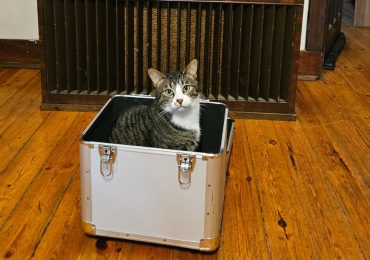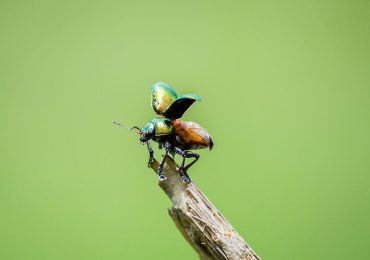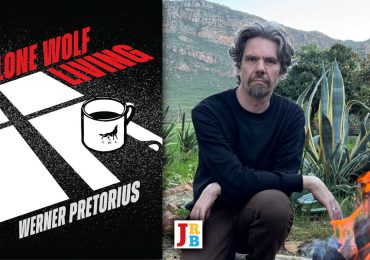Whatever writing emerges from this moment will be an attempt to build a new Johannesburg, writes guest City Editor Lidudumalingani.
South Africa is in a national lockdown because of Covid-19, in which, among others, the restrictions are that, without any valid reason, sworn by a piece of paper, no citizen should be wandering on the street. Soldiers and police have been deployed to keep, if not insist, on order. This reads like the beginning of an apocalyptic novel yet it is not. This is the moment we are in. A moment of forced solitude. A moment that is beginning to gnaw at our patience.
It is now day fifteen of the initial twenty-one-day lockdown, and President Cyril Ramaphosa has just announced a two-week extension.
The days have turned into hours, hours into minutes and a minute is now as long as a second was only a few weeks ago. An entire day, as Paul Kalanithi writes in When Breath Becomes Air, becomes consumed by a single plan.
Or, as Anne Michaels writes in Fugitive Pieces, days are as slow as dream time.
One day, the single plan was to take a picture of a blanket cover left by the door that leads to the balcony. In the morning, starting around eight, until midday, the sun permeates the window in the lounge, and escapes through the balcony door. That morning, the sunrays caught the blanket cover on its corners, framing the torn bits, the visible white thread.
Another day, rummaging through the bookshelf and books on the floor, to find texts on cities, precisely, on how cities function in a lockdown, and how that differs to the old everyday. The search wasn’t only to find texts that described these empty lockdown cities, offering a new cartography, new architecture, new markets, new off-ramps, but to find a new vocabulary for the new city.
Of all the literature that has been written about Johannesburg, none reckons with the present times, the empty city, the city in isolation. From Kgebetli Moele, to Phaswane Mpe, to Ivan Vladislavić, to Nozizwe Jele, to Miriam Tlali, the protagonists are moving, leaving their houses, to see to plans, to see to their jobs, actions in which they are charged by their personhood, and a sense of urgency. There is another reading here, in these same texts, that captures the current times we live in, this self-isolation, this lockdown: If any place says lonely, it is a crowded city, but its sleight of hand is that it convinces us that we’re not alone.
Now, this isolation is impossible to deny, and we turn to ourselves, to stare into our souls, because there is nothing to shield it. It is such that to overcome this period, we might have to replenish our repertoire of self-entertainment. We’ll find solitude in photographs, familiarity in novels, beauty in poetry.
And so, to invent a new vocabulary, to write of the new city, to contend with our economic differences, our domestic refuge and violence, our architectural realities, we can turn to literature, to make peace with the new world, or to find something else, the makings of a world we used to know.
In an article in the National Geographic, May 2019 issue: urban life involves ‘the trade-off between individual freedom and community interests, and the trade-off between social ties and anonymity’. Except that at this moment the trade offs are gone. Urban life is bureaucratic and state enforced. It is not of our own will. It is not us immersing ourselves into solitude. We’re not carving a world in which birds chirp, highways are silent, and there is nothing to do. We are prisoners of it. The very thing that we spend our lives seeking, escaping the chaotic city, is the very thing we want to escape from, into some kind of disorder. What then? Well, there is always literature. There are always old words, and the new, unwritten—that which this lockdown is inspiring.
Throughout history, many cities have been rebuilt more than once, Tokyo, twice, first after the 1923 Great Kanto earthquake and again after the city was bombed in World War II. Christchurch, after the earthquake. Chicago, after the fire. Writing a city rebuilds it. Whatever writing emerges from this moment will be an attempt to build a new city. Now, more than ever, the familiarity of places, faces, architectures, topography, will return to us in great detail. In this time, we might even remember the places we don’t like, and wonder, perhaps, if we were patient enough, if we had tried enough, we could have seen their beauty.
At a time yet unknown, the city of Johannesburg will return to normal, altered in small ways, largely remaining the same. We are now at the place where bravery, to face these days of isolation, turns to despair. May it not. May bravery endure, however thinly, until the last day.
- Lidudumalingani is a writer, filmmaker and photographer, and winner of the 2016 Caine Prize. Follow him on Instagram and Twitter.






One thought on “[City Editor] The search to find a new vocabulary for the new city—Lidudumalingani muses on literature and lockdown Joburg”